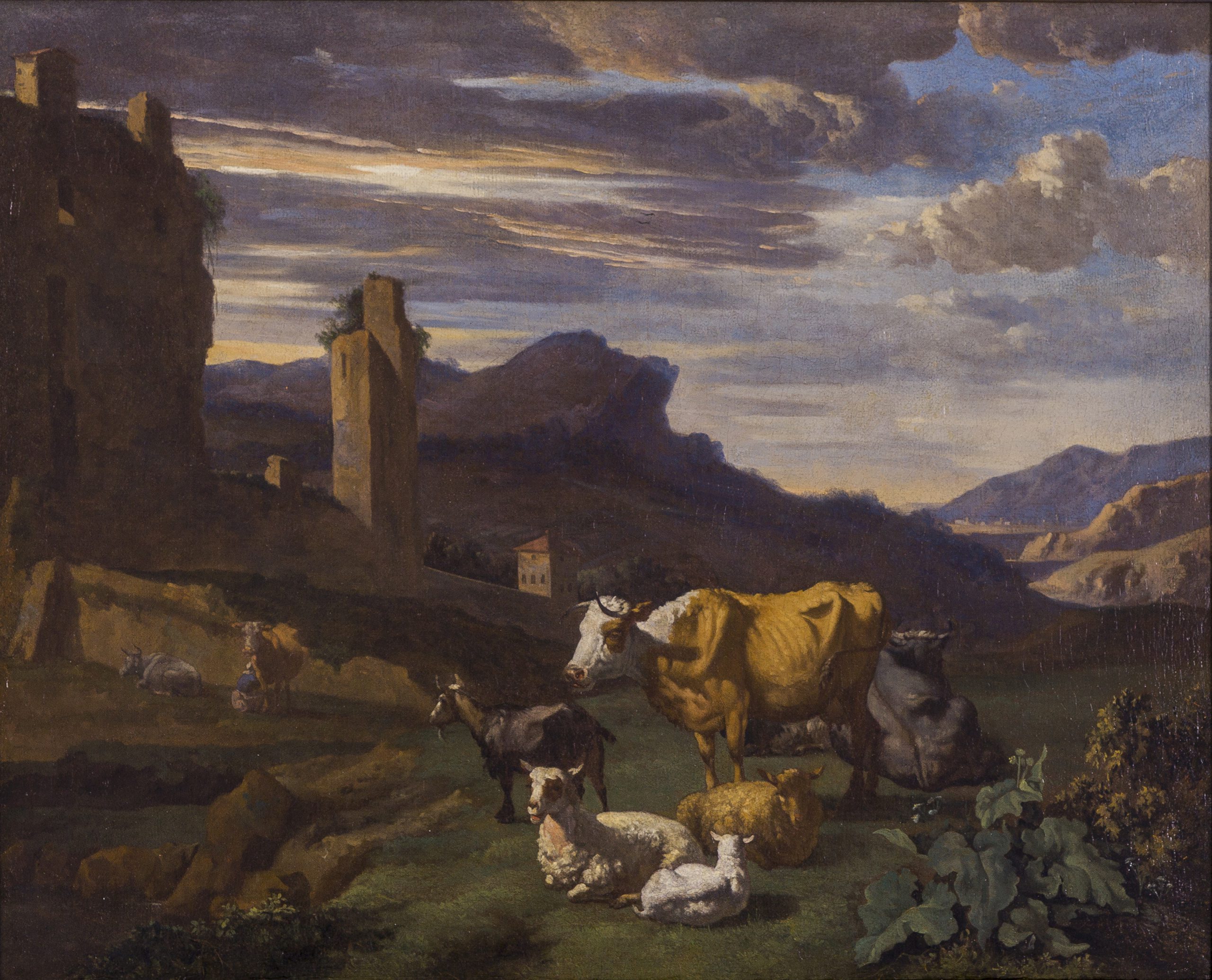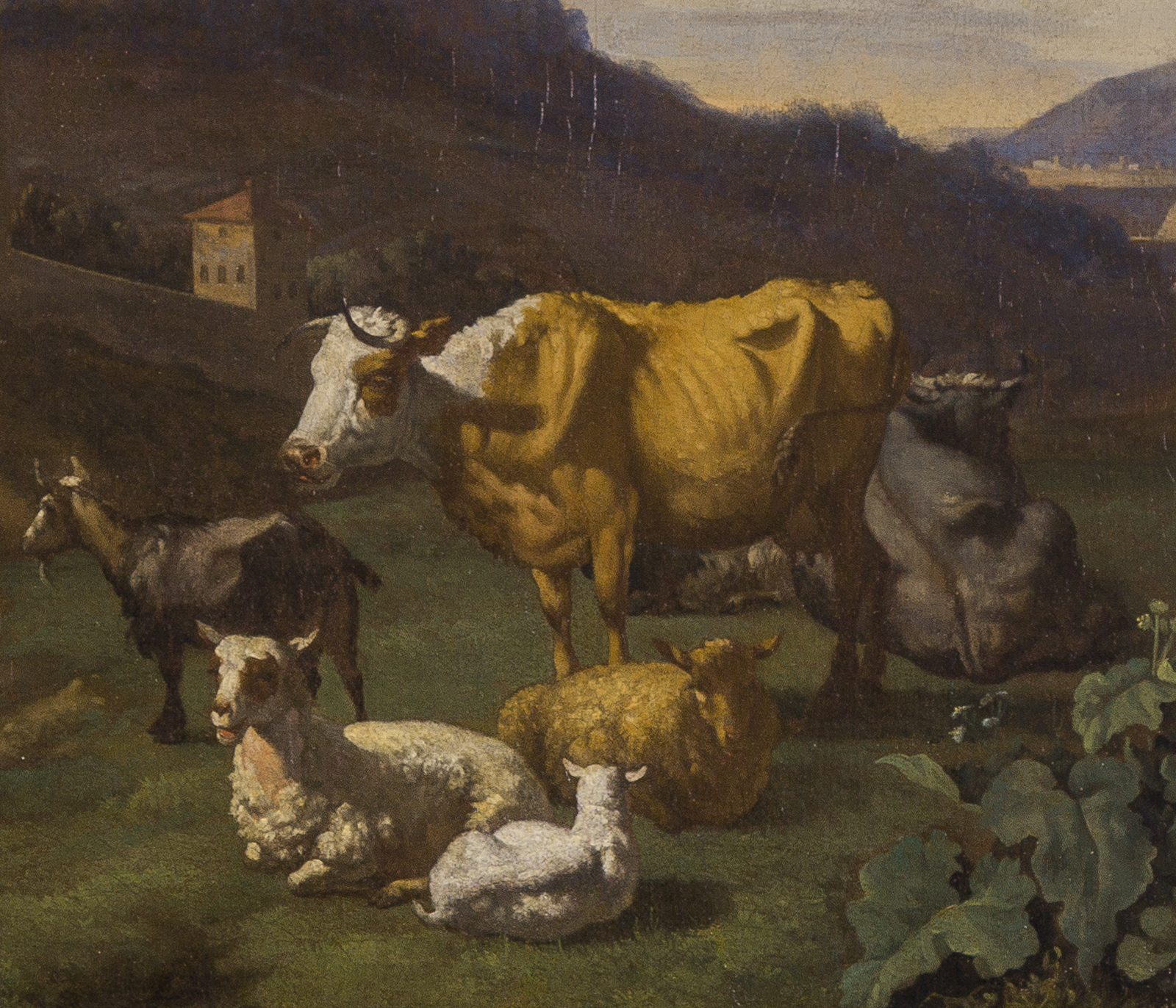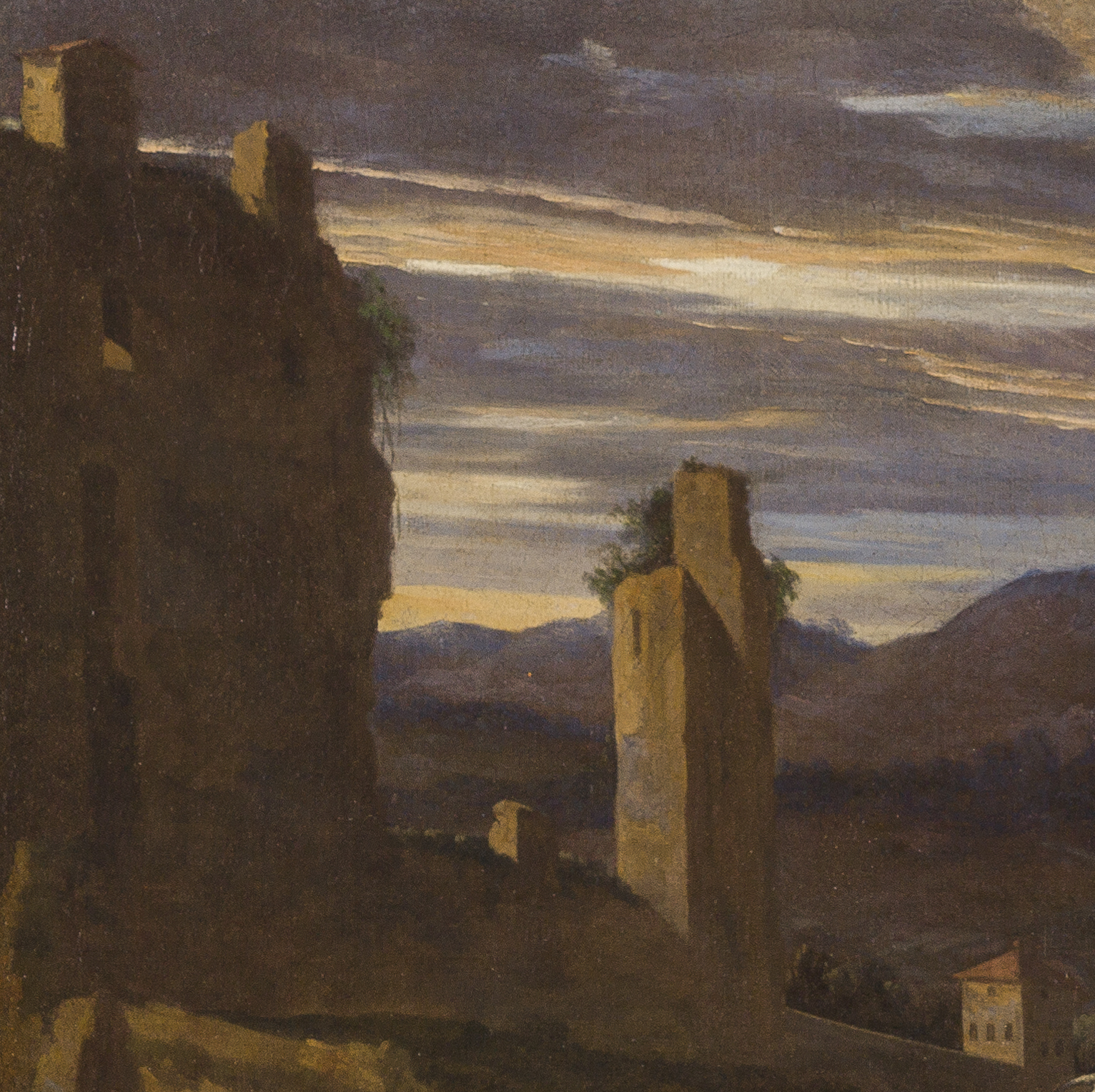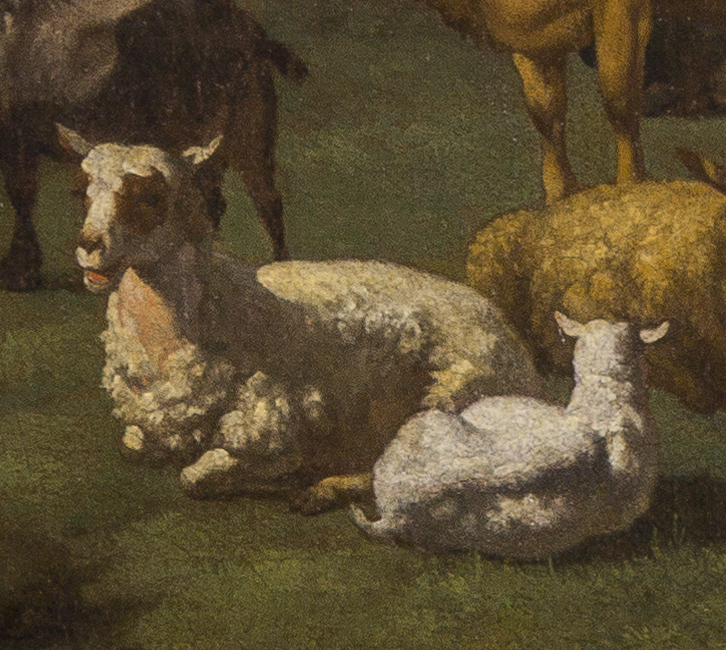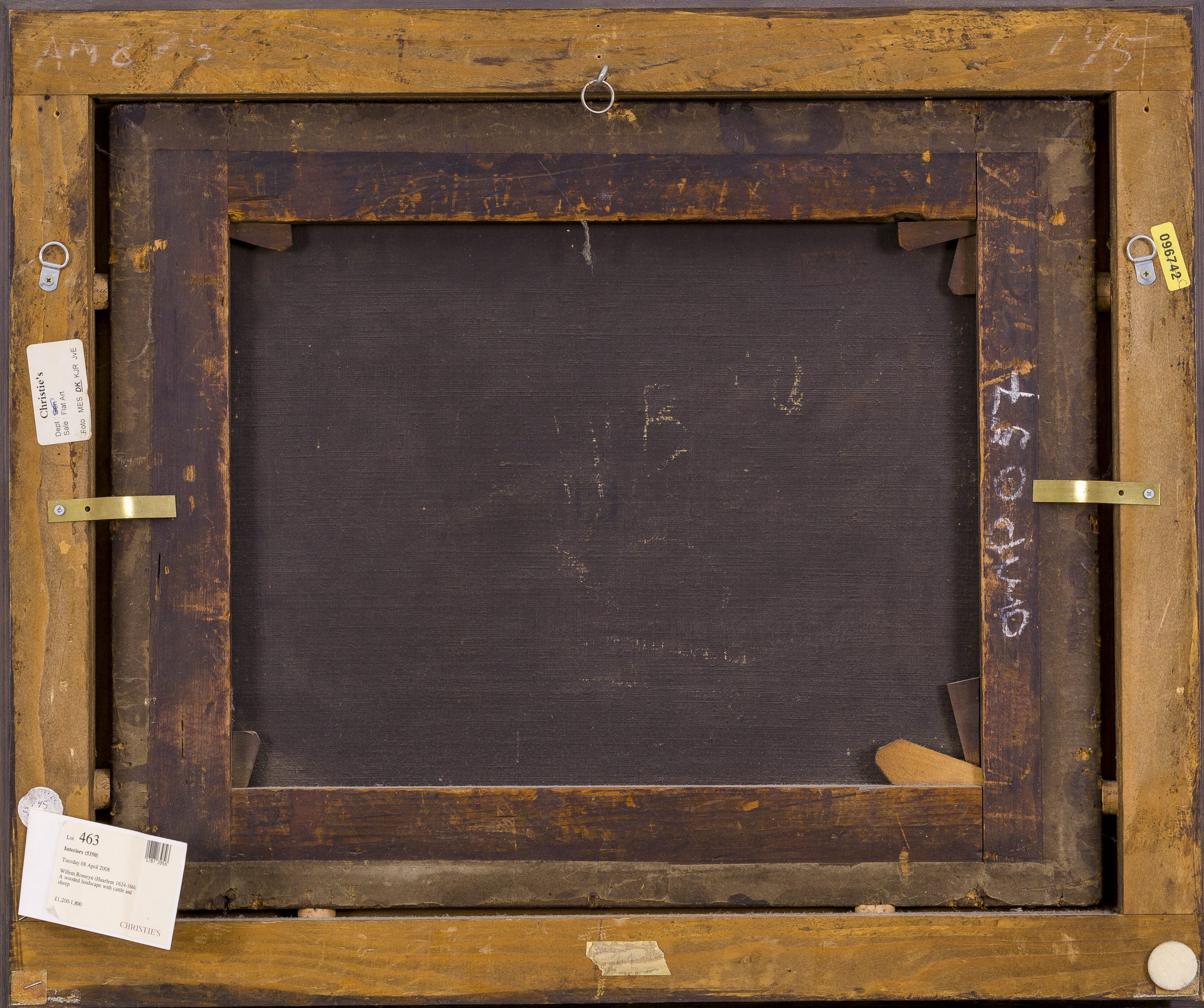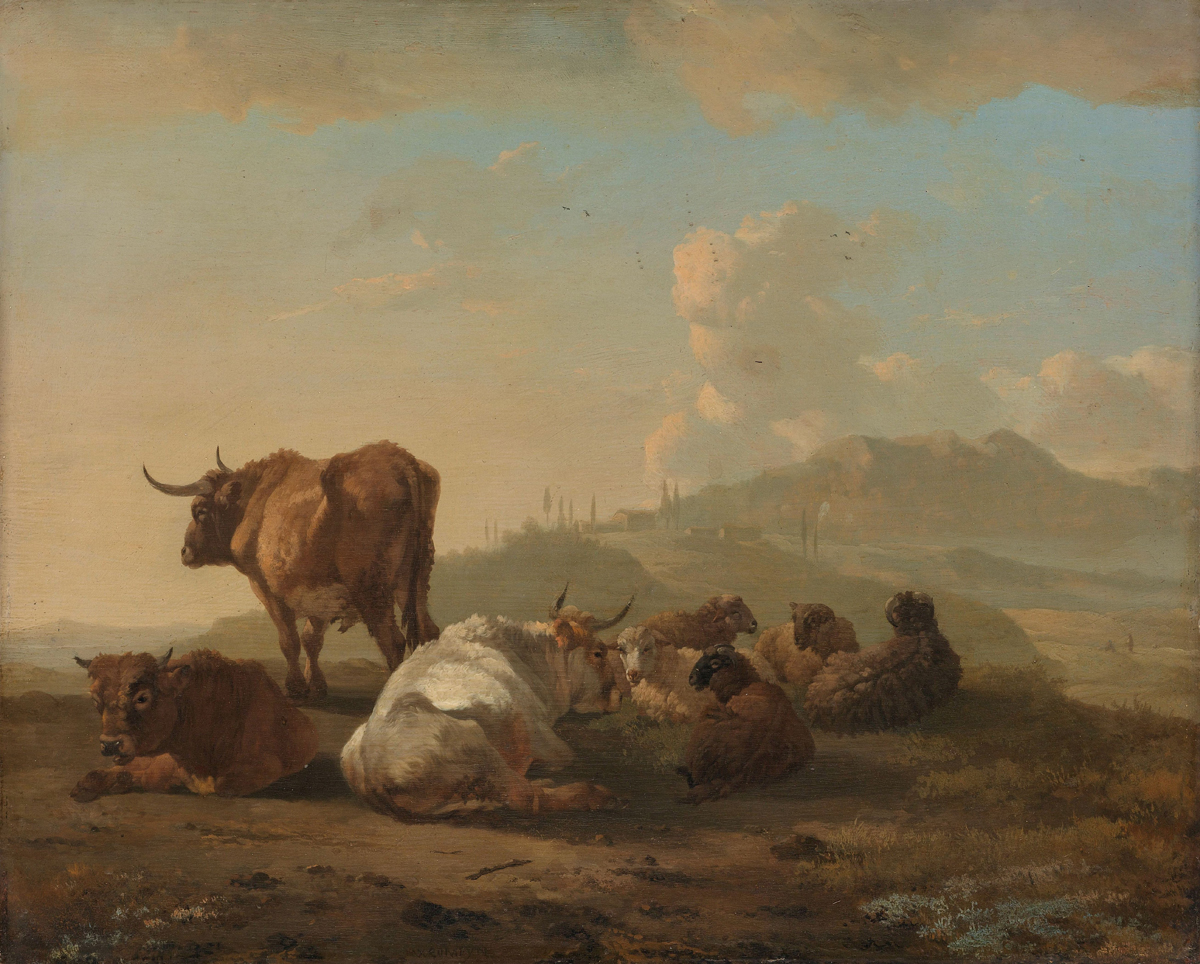WILLEM ROMEYN (Haarlem c. 1624 – c. 1694 Haarlem)
Willem Romeyn (Haarlem c. 1624 – c. 1694 Haarlem)
An Italianate Landscape with Cows, sheep and a goat in a meadow, a peasant woman milking a cow in the background
Oil on canvas, 45.5 x 56 cm (17.9 x 22 inch); presented in dark-stained frame of 17th-century model
Provenance
Anonymous sale, Van Marle & Bignell, The Hague, 1955; J.C.H. Heldring Collection, Oosterbeek (Renkum); SØR Rusche Collection, Oelde, Germany, Sotheby’s, Amsterdam, 5 November 2002, lot 145; Christie’s, South Kensington, 8 April 2008, lot 463
Literature
~Die Glocke, Oelde, 10 December 1976 (advertisement)
~Hans-Joachim Raupp (ed.), Niederländische Malerei des 17. Jahrhunderts der SØR Rusche-Sammlung, Stilleben und Tierstücke (Band 5), The Hague / Münster 2004, no. 48, pp. 218-19 (with colour ill.) (as circle or follower of Romeyn, with a possible attribution to Dirck van Bergen)
***
Willem Romeyn was taught by Nicolaes Berchem in Haarlem around 1642, and became a master in the Guild of St Luke in this city in 1644.1 Like his master, Romeyn specialised in Italianate landscapes. Although Berchem never actually visited Italy, Romeyn departed for Rome in 1650, where he lived in the Via del Croce and was known as Guglielmo Romano. Having returned at the end of 1651, his first son Johannes was born in Haarlem in August 1652.
Romeyn remained in Haarlem for the rest of his life, drawing on the impressions he had gathered during his sojourn in Rome, and drawings ‘naer ’t leven’ (from life), which he made there, as he was also an active and talented draughtsman. His paintings display the influence of his master Berchem, and are invariably infused by a warm Mediterranean light. Romeyn excelled at charming representations of farm animals, such as the cattle and goats shown in the present work. Italianate landscapes were highly valued during the seventeenth century by collectors from the highest layers of society, who had frequently visited Italy themselves and were generally well schooled in the authors of Classical Antiquity.
Works by Romeyn can be found in many of the world’s leading museums, including the Dulwich Picture Gallery in London, the Gemäldegalerie in Munich, the Musée des Beaux Arts in Orléans, the Staatliche Kunsthalle in Karlsruhe and the Städel Museum in Frankfurt-am-Main. Our well preserved painting may for instance be compared with a Mediterranean Landscape with Resting Herd in the Rijksmuseum in Amsterdam (fig.).2
Dr Walter Bernt, in a certificate dated Munich, 6 September 1975, confirmed this as Romeyn.
1. For the artist, see Peter Schatborn, Tekenen van warmte, 17de eeuwse Nederlandse tekenaars in Italië, exh. cat. Amsterdam (Rijksmuseum), 2001, pp. 147-51 and Eckhart Knab, ‘Willem Romeijn: ‘Een gesicht van Tivoli naer Romen’, Master Drawings, 2 (1964), pp. 163-168.
2. Panel, 30.5 x 37.5 cm, inv. no. SK-A-340, P.J.J. van Thiel, All the paintings of the Rijksmuseum in Amsterdam, Amsterdam 1976, p. 479.
